Winter 2021
Studying Abroad from Portland
Three Cambodian UP students reflect on distance learning.
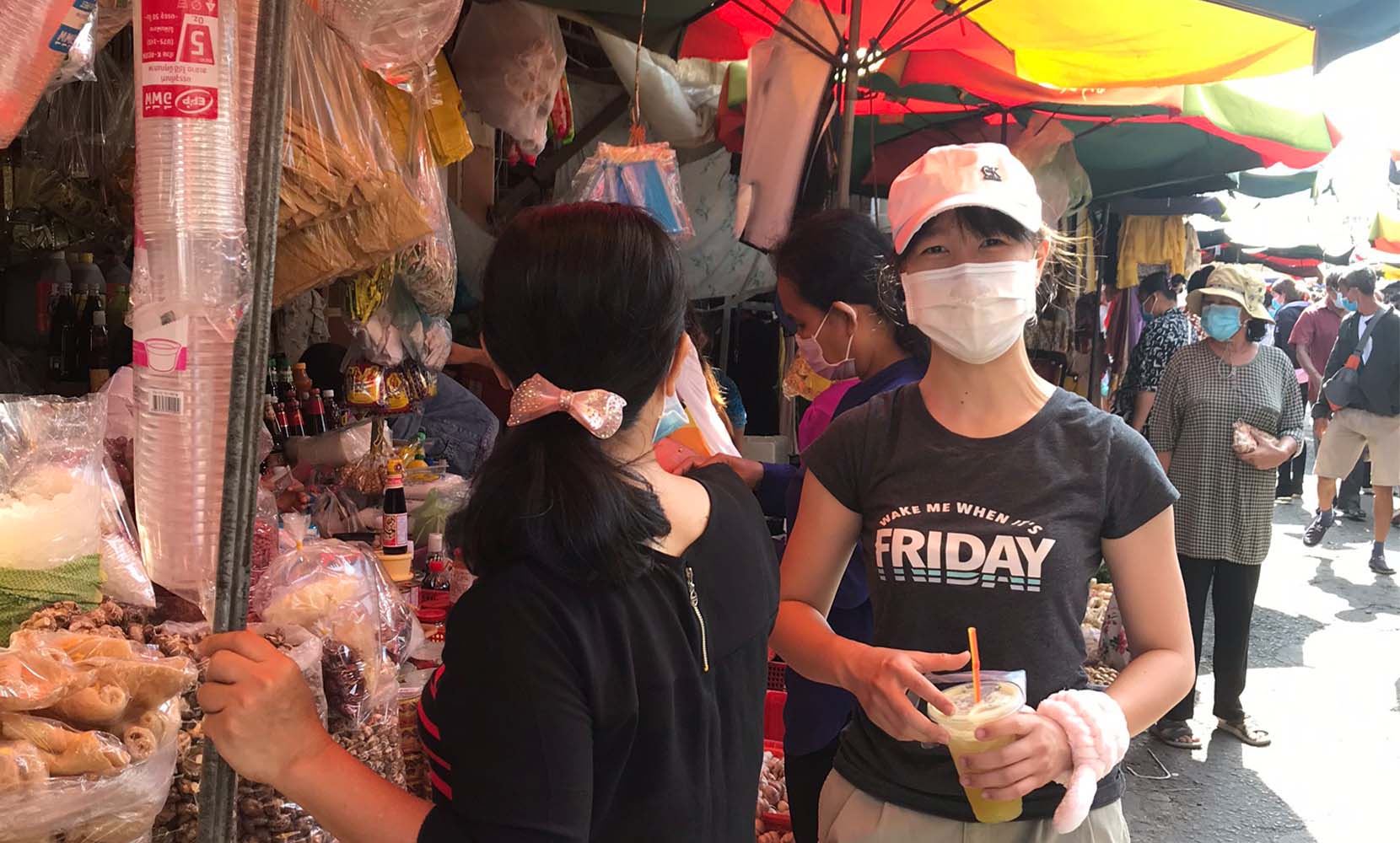
MEY SROU'S FAMILY didn’t really want her to leave Cambodia to start her college education in the US during the pandemic. So far, COVID-19 has had minimal impact in Cambodia. The risks would be higher in the US, and she’d have to do distance learning in a dorm room in relative isolation.
But Srou was ready. “I still wanted to come,” she says.
She felt pretty lonely at first. This was neither a typical first semester abroad nor a typical first semester at UP. But now that classes have been moving forward and she has met some people, she has hit her stride. She has started to learn piano. She has made a habit of loading ketchup onto American food to give it an extra little kick. And she has enjoyed her learning, particularly professor Montana Hisel-Cochran’s business class, in which she and a group of students had to simulate running a café, determining how much overhead they had, how many staff they might have to lay off if the numbers didn’t add up. Srou is thinking she wants to become a business major.
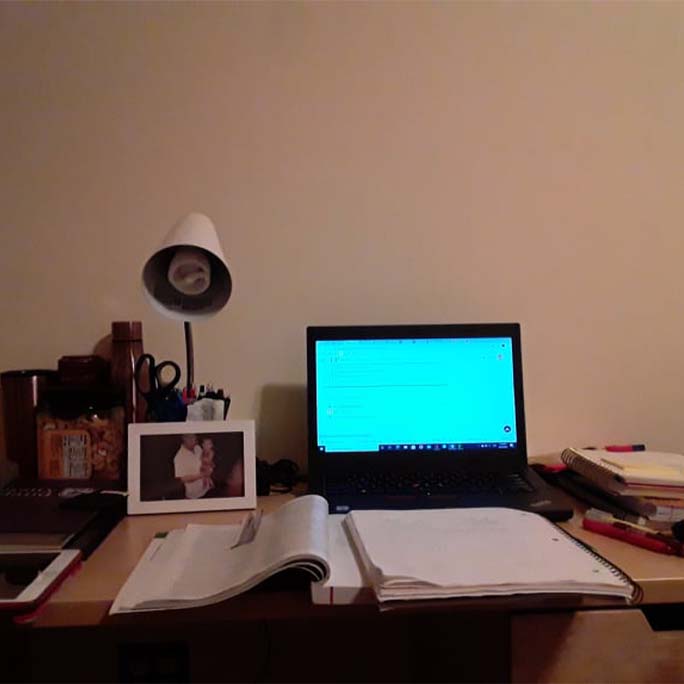
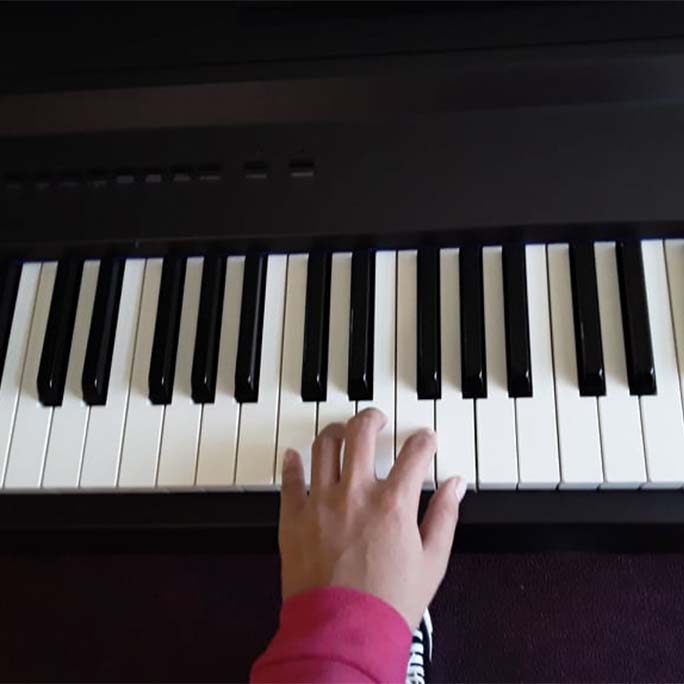
Srou has also enjoyed the support of her mentor, economics major Rosie Ith, who is also from Cambodia. Ith, now a junior, has “been there,” as a first-year international student at UP. She understands the stresses, the cultural shifts, and she and Srou have talked through everything from how in the world to get all the work done on time to techniques for keeping an even keel (during a year that no one could characterize as “even”).
Since distance learning began, Ith has been taking her classes from Cambodia, 14 hours ahead of Portland’s time zone, which means she’s been getting up at 4 a.m. for some of her classes. Her professors have tried to accommodate her by recording all the classes, so she can watch them at a more suitable time. But Ith realized she likes in-person best, so she’s been logging on in the wee hours.
Sahas Sok, who is a UP junior from Cambodia, has also opted to show up for in-person class, even if it means she has essentially become nocturnal. She has classes from 11 p.m. her time until 4 a.m. “Attending live sessions allowed me to ask questions and helps me to learn better and manage my time better,” she says.
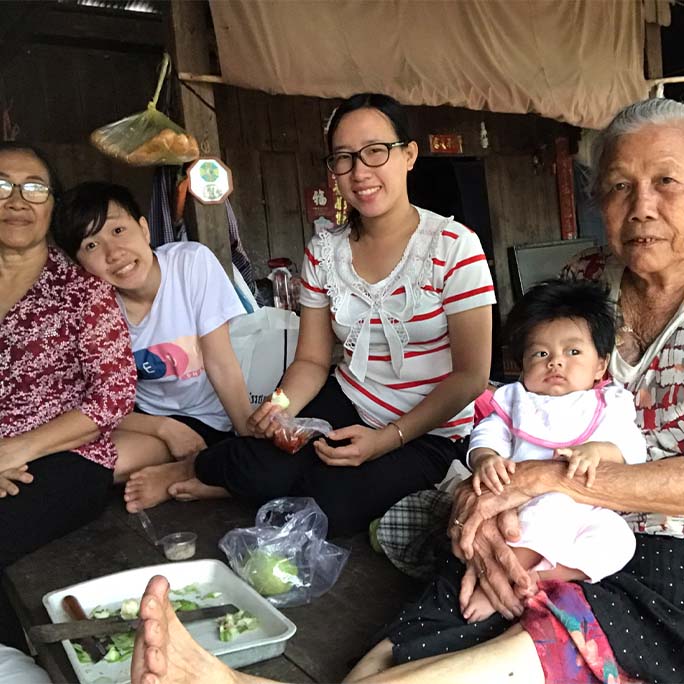
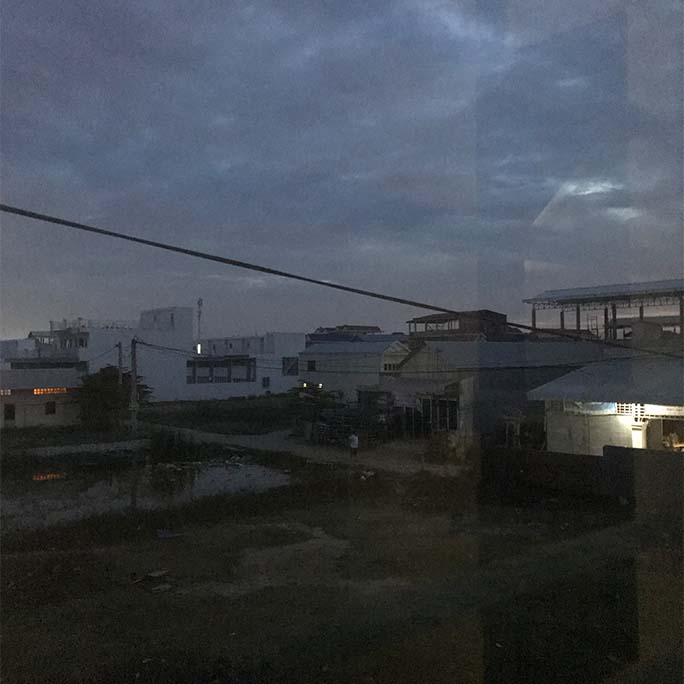
Sahas Sok, who is a UP junior from Cambodia, has also opted to show up for in-person class, even if it means she has essentially become nocturnal. She has classes from 11 p.m. her time until 4 a.m. “Attending live sessions allowed me to ask questions and helps me to learn better and manage my time better,” she says.
Sok has enjoyed the opportunity to take part in the local STEM festival for Cambodian youth. A civil engineering major, she wrote a number of scripts for the festival; one of them involved an experiment to test whether a solution is an acid or base, using red cabbage. “We created simple, easy lessons for them, so even in rural areas, where they might not have modern equipment, they can still do the experiment,” she says.
They both admit they are grateful for the added time with family. Sok’s niece was born over the summer, so she’s enjoyed watching her grow.
All three Pilots look forward to getting back to in-person single-time-zone classes on The Bluff as soon as they can.